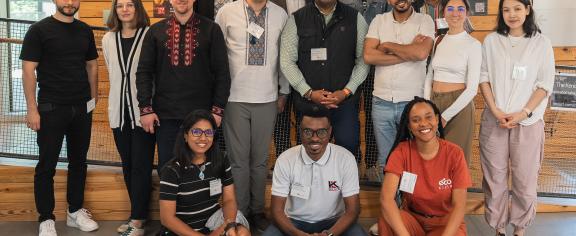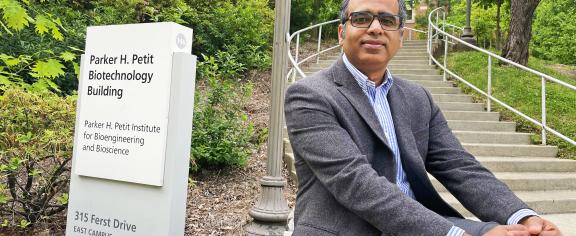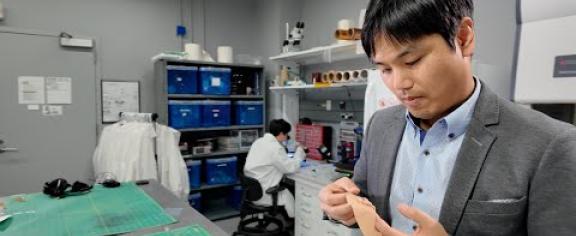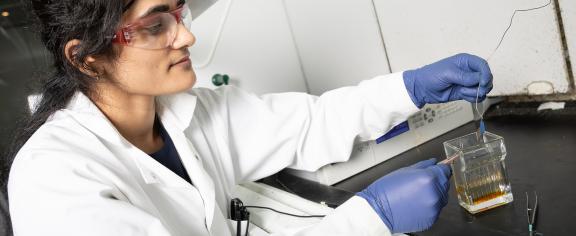2024-06-18
Entrepreneurs are on campus to learn how to scale and develop viable ecosystems for startup success.
2024-06-12
Researchers at Georgia Tech have developed a method using nanowires to deliver miRNA to T-cells, preserving their naïve state and significantly enhancing their effectiveness in adoptive T-cell therapy for fighting infections and potentially cancer.
2024-06-11
Georgia Tech researchers are developing sustainable ocean shipping solutions to meet global emissions targets through eco-friendly fuels, optimized supply chains, and life-cycle assessments.
2024-06-11
Georgia Tech researchers are developing sustainable ocean shipping solutions to meet global emissions targets through eco-friendly fuels, optimized supply chains, and life-cycle assessments.
2024-05-15
A team of Georgia Tech and MIT researchers found that discarded brewer’s yeast, when encased in hydrogel capsules, becomes a viable and inexpensive method for purifying contaminated water.
2024-05-14
Family tragedy changed Hong Yeo’s life, with his new direction leading to a new potentially lifesaving medical device.
2024-06-06
Yokoyama presented a new framework for semantic reasoning for robots at the IEEE International Conference on Robotics and Automation, where he won best paper in the Cognitive Robotics category.
2024-05-31
New analysis from Georgia Tech indicates that a phenomenon known as social correction may help to counter false and misleading onloine claims.
2024-05-29
Melecio will focus on economic development for life sciences and biosciences.
2024-05-20
Researchers etch nano-sized textures and add copper ions to create a naturally antibacterial material for hospitals and other shared settings.








